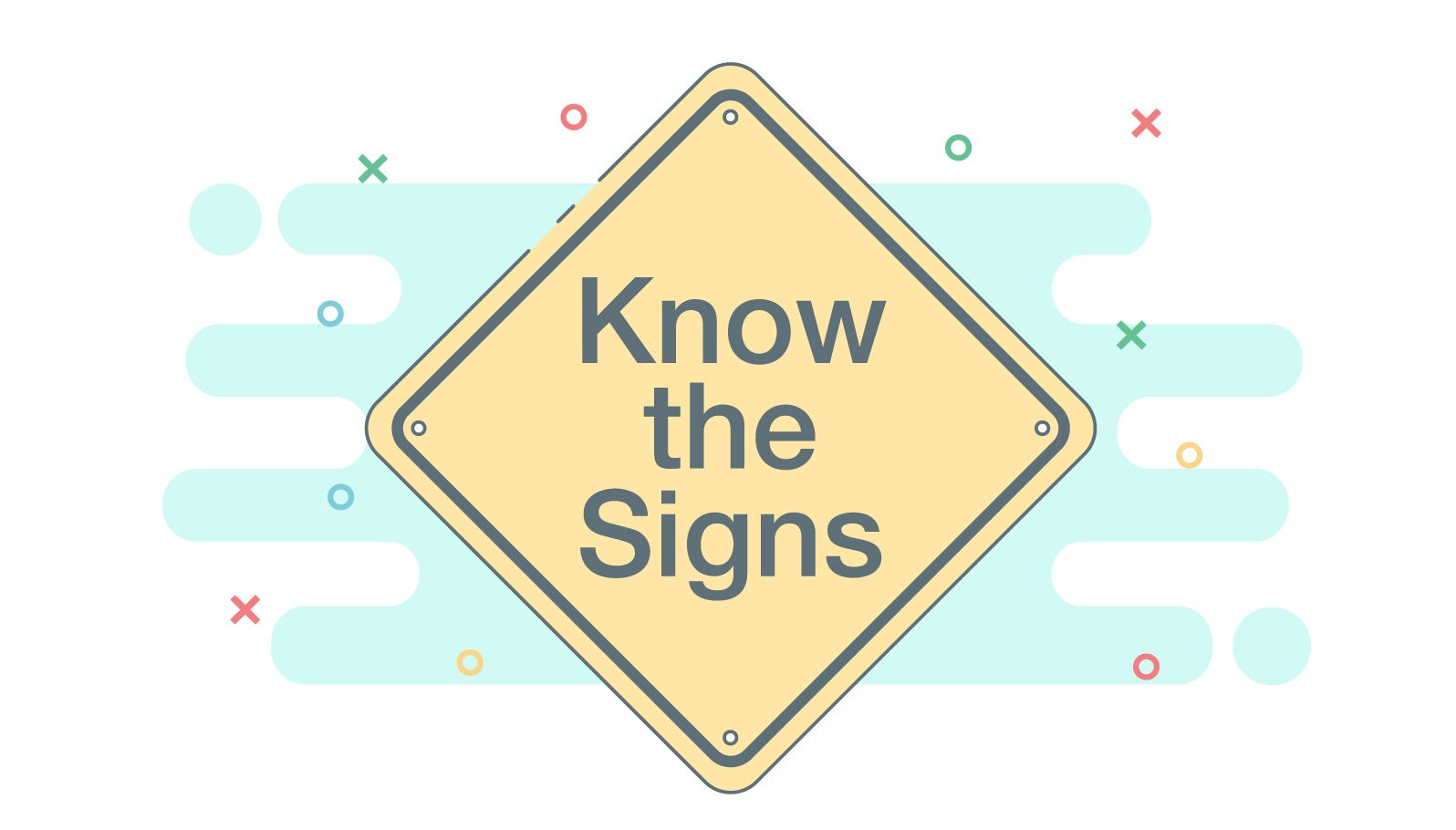Suicide - Signs and Symptoms
By Kirk Postlewaite, formerly of Washington County Mental Health, a Designated Non-Profit Agency of the State of Vermont and member of the Vermont Care Partners

How do you know if someone is considering suicide? There are situations when this may be obvious, for instance if a person openly talks about suicide or wanting to die. Yet, there are many other signs and symptoms that may offer subtle clues. For people who are struggling with thoughts of suicide, having people in their life who are aware of and understand what to look for could make an important difference. It could even be what helps the person through a situation to seek help and heal. You can learn to recognize signs that a person is more than simply sad or upset and that they are considering harming themselves or even taking their life. By knowing what to look for, you can then reach out to them - a friend, a loved one, or even someone you don’t know as well.
As mentioned above, sometimes a person, young or old, will openly discuss suicide. This must always be taken seriously, even if you do not think they are serious or that they may possibly be doing it for attention. That is not important. What is important is that they be heard, supported, and directed towards professional help. In many cases, there may be no direct indication that a person is thinking of suicide. The time span involved between someone going from having thoughts of suicide to acting on those thoughts varies. However, crisis situations can often lead to a more critical time for someone struggling with thoughts of suicide. Therefore, being aware that someone is in distress due to circumstances in their life can be very helpful when reaching out to offer support.
Certain risk and protective factors are also important to take into consideration when you are concerned about a person’s intentions. Some risk factors include previous attempts, alcohol or drug misuse, impulsive tendencies, a family history of suicide, lack of strong attachment to others, physical or other abuse, and a family or personal history of mental illness. Protective factors include good attachment and connection with others, a sense of belonging, optimism about the future, reasons for living, and good self-esteem.
Some signs and symptoms associated with suicidal ideation (thoughts) are giving away possessions, increased use of substances, withdrawing from others, anger or revenge seeking behaviors, extreme sadness, expressing feelings of being unwanted, feeling trapped, and feeling hopeless. If you notice someone experiencing symptoms like these, reach out to them right away and let them know you care and ask how they are doing.
One symptom that is often mistaken for a positive change is when someone who has been very sad or withdrawn or angry suddenly is back to their ‘old self’ or very upbeat. While this can be relieving to see, it can in fact may actually indicate that the person has come to terms with their choice about suicide which lessens the tension associated with making this choice. This is an example of the importance of both recognizing the signs and symptoms that can indicate someone is struggling with suicidal thoughts and then being willing to reach out to them despite the potential awkwardness or fear surrounding this difficult subject.
Our next segment in this series about suicide awareness will be on how to have a conversation with someone you think might be having suicidal thoughts. This is a critical step in helping someone remain safe and seek the help they may need. While this is a difficult topic to think about and discuss openly, these are critical components of moving the trend in Vermont and beyond in the right direction so that someday soon, no one dies by suicide.
Whether you are concerned for yourself or someone else, please know that you are not alone and that there are people who are willing to help. Please don’t wait to reach out for help if you are concerned; there is hope and things can get better.
For more information about suicide awareness and prevention, please visit the Vermont Suicide Prevention Center at www.vtspc.org or the National Suicide Prevention Lifeline at www.suicidepreventionlifeline.org or by calling 1-800-273-8255. If you are a Veteran, call 1-800 - 273-8255 and Press 1. You can also use the Crisis Text Line by texting VT to 741741, and you will be connected with a live, trained counselor quickly. (learn more: www.crisistextline.org) Here in the Lamoille County, you can call Lamoille County Mental Health Mobile Crisis Team at 802-888-5026 Option "1". To learn more, visit Lamoille County Mental Health Services at www.lamoille.org or follow our Facebook page.
SOURCE: This series is a collaboration produced by members of the Vermont Care Partners statewide network of sixteen non-profit, community-based agencies providing mental health, substance use and intellectual and developmental disability support. To find an agency near you visit: https://vermontcarepartners.org/agencies/



